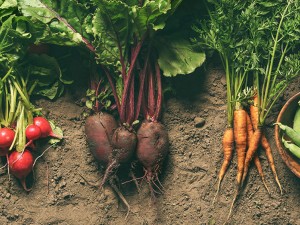Dec 15, 2022
While some of us have trouble digesting vegetables or simply struggle to get enough into our diet, juicing can be a great tool to reap the benefits of these nutritious superfoods. For example, fresh juices contain vitamins, minerals, antioxidants, and high levels of polyphenols. One study found that supplementing with mixed fruit and vegetable juice over 14 weeks improved participants’ nutrient levels of beta carotene, vitamin C, vitamin E, selenium, and folate (1).
Whether you are new to juicing or are a juice master, following the tips below can help you effectively incorporate fresh juice into your diet.
Add Juice to your Meals and Focus on Veggies
While juicing has many benefits, it does remove the fiber which helps slow digestion and balance blood sugar. Drinking juice on its own, especially juice that is high in sugar, can raise sugar levels in the blood. This can affect everyone differently so if you have blood sugar issues or you don’t know how your body will respond to fresh juice, it’s best to pair your juice with a meal that has some fiber, fats, carbs, and protein to prevent that spike in blood sugar. Another reason to juice primarily veggies as they have less sugar!
Buying vs Making your own Juice
Buying juice is more convenient and is a great option when you don’t have time to plan or are on the go, but fresh is always best. Why? Enzymatic activity and nutritional value continue to decrease the longer it’s been since the juice was pressed. A good rule of thumb is to consume your juice within 24 hours of making it. As well, you will want to make sure you are storing it in an airtight container, in the fridge to prevent further oxidation.
Why Organic is Best
Conventional produce typically contains more pesticides and herbicides. Furthermore, soluble fiber helps to protect your body from pesticides and herbicides and since juicing removes the fiber, you remove that barrier of protection. If you do choose to use conventional produce, be sure to wash them with a chemical free fruit & veggie wash or try making your own.
You Don’t Need to Drink Juice Everyday
Juicing can sometimes be a chore (anyone else dislike cleaning all 20 pieces of their juicer 😉) but the good news is, is that you don’t have to juice every day to reap the benefits. Juicing just 2-3 times per week can provide a sufficient boost in nutrients.
Don’t know where to start? Below are a few recipes for you to try! As well, here is a list of some vegetables & fruits and their benefits to help inspire your next juice creation...
Beets: Contain nitrates which help increase blood flow to the brain.
Cilantro: Raises energy levels, helps clear skin, and supports heavy metal detox.
Cucumber: Contains antioxidants and the high water content promotes weight loss.
Ginger: Improves digestion and supports the immune system.
Carrots: Improves eye health and are rich with vitamins and minerals.
Celery: Supports digestion and reduces inflammation.
Green Apples: Contain some pectin, which promotes good bacteria in your gut.
Kale: Super nutrient-dense; contains high levels of Vitamin K, critical for clotting.
Citrus Fruits: Filled with Vitamin C to support immunity (2)

Spring is the perfect time to turn our attention to our liver health.

If you’ve ever hosted a party, you know that it always comes with some level of stress.

"Any food, seed, or animal feed that is labelled organic is regulated by the Canadian Food Inspection Agency (CFIA).